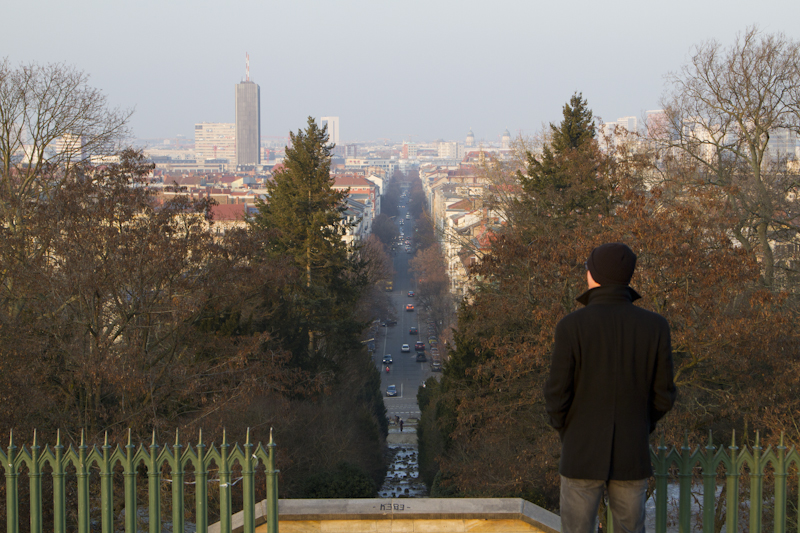
It’s easier to get into North Korea than it is to rent a flat in Berlin.
I can say that with great confidence, having done both.
In Canada, renting a flat was simply a matter of replying to a few ads, viewing a few places, and filing out an application. The landlord might ask your permission to do a credit check — at their expense — but that was it.
It doesn’t work that way in Berlin.
When it comes to renting, the Germans have done the equivalent of taking a small word and mashing it together with other small words to create a single page-spanning word of intimidating length and utter incomprehensibility.
I thought readers back home might find it interesting to hear just how overcomplicated such things can be.
The main source of information for renters in Berlin is a website called ImmoScout. That’s where you’ll find searchable ads for newly available accommodations all over the city.
If you join the premium version — you have to sign up for a minimum of six months — you can get access to more information, like how many people viewed each ad, how many contacted, and what your chances of acceptance are given your income level.
The premium version also allows you to upload a profile containing the reams of documentation that you’re expected to submit to prospective landlords. More on that in a bit.
Most people I spoke to advised me to sign up for the paid version to improve my odds. That’s because Berlin has a housing shortage. It’s been this way for years.
It’s not uncommon to see 200 to 300 people turn up at an open flat viewing. The queue can stretch down the block as the faceless masses trudge from room to room, leaving their documents on a table by the exit.
It’s necessary to apply for any flat that remotely fits your criteria, and to take the first offer you get because there might not be another.
Having a foreign name can be a distinct disadvantage. Landlords seem to prefer German tenants, in part because they don’t want to deal with someone who struggles with the language, but also because Germans are predictable. They’ve been in the system their entire lives, and so they have all the right documents.
I’ve found flats within a week — two weeks max — in Canada and Malta, but it can take months to find one here. I know people who have been looking for over a year.
Some want to move to a better place than their current home. Others, unable to get accepted anywhere, bounce from one short term sublet to another while trying to find something permanent. A month here, two months there, shuffling around with a suitcase full of stuff.
Surely there are better ways to live?
The costs of moving are also very high.
First, the security deposit. German landlords expect you to hand over an amount equal to three months rent.
The flat comes with nothing — no appliances, no window blinds, no light fixtures (just bare bulbs, or in many cases, 3 bare wires sticking out of the ceiling), and sometimes not even a kitchen sink.
The tenant is often expected to put in a kitchen at their own expense. You can either rip it out again when you leave, or try to strike a deal with the next tenant so they give you some cash to take over yours.
Now, call me overly cautious, but it doesn’t strike me as a good idea to oblige tenants to do their own wiring and plumbing. Who can afford to hire a professional after shelling out that massive deposit? And why bother when you can just bodge it together with YouTube?
Oh, and don’t call the landlord if small things break — not that they’re likely to answer you anyway without months of hounding letters by post. Tenants are expected to pay for their own repairs up to a certain value for things inside the flat.
In Berlin, you’re getting a few bare rooms — and consider yourself lucky if you can find that.
I think it’s this way because Berliners are lifelong renters. People tend to move into a flat and stay for decades, painting the walls, putting in a kitchen, tiling floors and making other improvements. There are at least three versions of Home Depot in my neighbourhood — Hellweg, Bauhaus and Obi — all massive, and always busy.
You will consider yourself lucky to find such a place after months of sending applications into the ether. It can make you feel like a planet hunter beaming signals beyond the solar system and hoping for an answer.
Believe it or not, I haven’t even told you about the worst part…
That would be the paperwork.
Germans love documentation. It goes on for pages. It comes in triplicate. And it must be delivered in person, sent physically through the post, or transmitted by a device the rest of the world abandoned long ago: the fax machine.
Don’t bother sending an email in Germany. It doesn’t exist unless someone physically receives it and verifies that fact with a stamp. Only then will someone else be unable to justify ignoring it.
So what sort of documents do you have to submit to rent an apartment in Germany?
I’m glad you asked.
We had to provide copies of our passports, a form from our previous landlord saying no rent is owed to him, proof of personal liability insurance, and a credit check for each of us (that’s called a SHUFA, and you pay for it yourself).
My wife is employed by a company here, so she had to submit her last three pay stubs, but the situation is more complicated for the self-employed. I had to submit a copy of last year’s tax return, and a profit and loss statement for my current year to date.
Unfortunately, this wasn’t enough to set the minds of prospective landlords at ease.
You see, as a freelancer, I’m the lowest form of bottom feeder here.
I’ve been renting for 30 years, in 4 different countries, and I have never once missed a payment to anyone. But in Germany, not having a fixed monthly salary for life — and a list of other fixed monthly expenses paid by automatic bank withdrawal — marks me as a loose cannon. Who knows what someone like me might do next?
I’ll write about the German need for certainty in an uncertain world in a separate blog. That’s really interesting. But let’s stick to renting for now.
After dozens of unanswered applications and a few rejections, my neighbours advised us to include copies of our bank statements in our folder. I also secured letters of intent for upcoming writing work to demonstrate I had more jobs on the horizon.
Oh, and we had to write a cover letter in German introducing ourselves, with details carefully chosen to make us look like paragons of stability and responsibility. I’m honestly surprised I wasn’t asked to produce my Stasi file.
You’d better make sure those documents are current, too. I had several of mine rejected because they were dated two weeks previously. They asked me to get a new one dated that same week.
In the end, we handed over so many detailed personal documents to total strangers that I had to create a title page and index to explain what it all was.
We applied for dozes of viewings through ImmoScout but only had one positive response. The only reason we got an invitation was because we applied at 2am, minutes after the ad went online. He took it down an hour later because there were so many responses.
The best way to find a flat in Berlin is through friends.The best apartments seem to be passed from person to person long before the upcoming vacancy is made public.
That was how we found our current place. The one we’ve been living in for four years. The one we’re about to leave.
And in the end, it’s how we found our new place, too.
The flat we’re about to move to was advertised in Japanese by a person hoping to find someone willing to buy their appliances and furniture in exchange for a direct referral to the landlord.
Because it was a direct referral, we didn’t have to compete with hundreds of Germans. Our thick folder of documents was assessed on its own merits. Luckily, we made the grade.
The funny thing is, my neighbours were amazed we found a flat so quickly.
They made it sound like a month and a half of daily searching had set some sort of land speed record.
At least I didn’t get bit by a monkey again. I suppose I should be thankful for that.

Finding an apartment in Berlin is not an easy task. The city is notorious for being difficult to rent an apartment in. There is high demand, prices seem to be rising all the time, and as in in any big city this demand creates a shortage of quality apartments. Plus in Berlin, there is a lot of paperwork and bureaucracy involved in renting, especially if you are an expat or foreigner. It can be incredibly stressful to navigate if you don’t know the city. You must do a lot of research but even that sometimes doesn’t make it stress free. I think there is an increased demand for coliving berlin options. This means great apartments, in great locations- and companies you can trust to help you find a good place to live without the hassle. Worth looking into for sure.